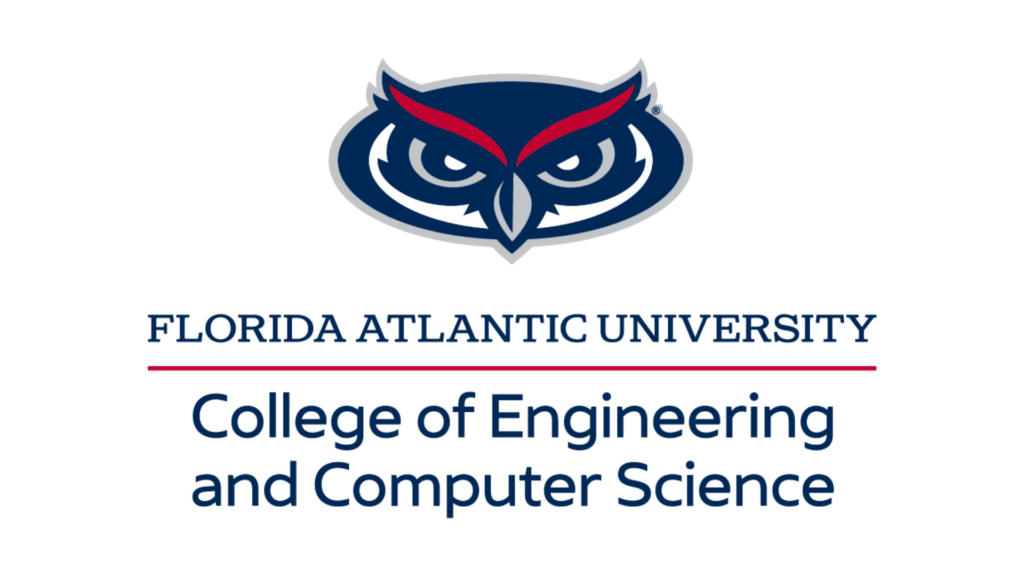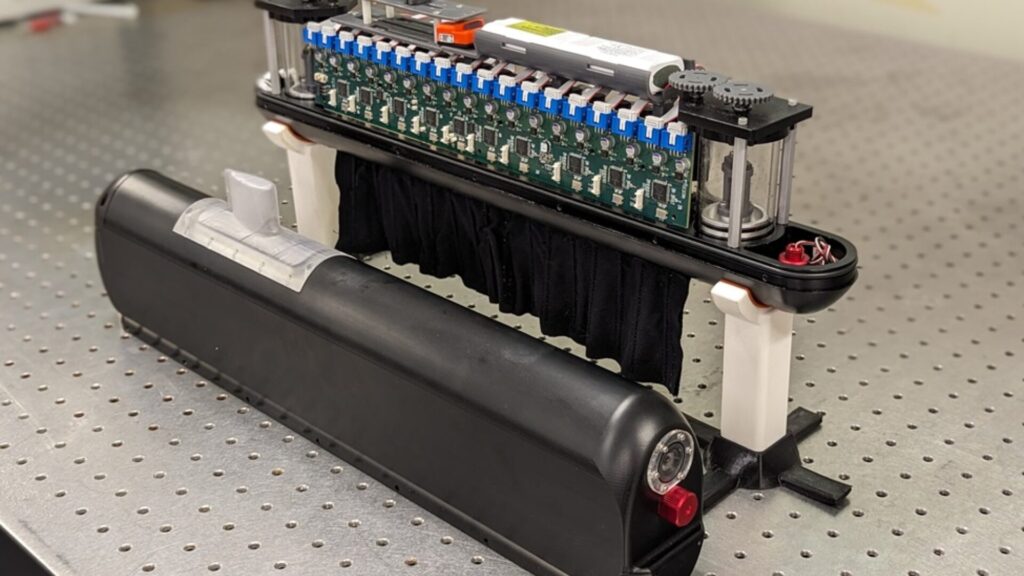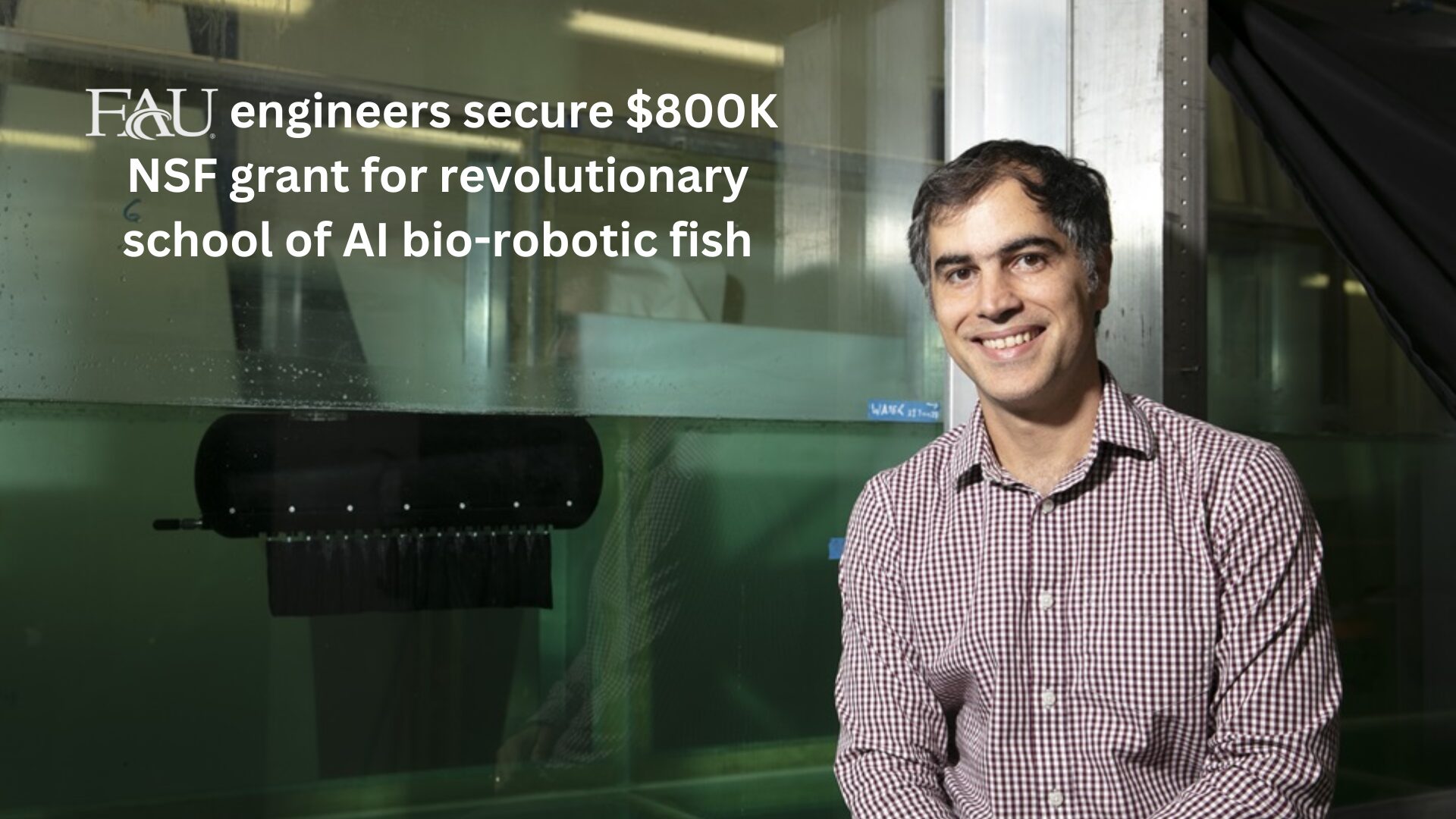 Researchers from Florida Atlantic University’s College of Engineering and Computer Science have been awarded a prestigious $818,396 grant from the National Science Foundation (NSF) to pioneer the development of an innovative school of bio-robotic fish.
Researchers from Florida Atlantic University’s College of Engineering and Computer Science have been awarded a prestigious $818,396 grant from the National Science Foundation (NSF) to pioneer the development of an innovative school of bio-robotic fish.
This groundbreaking project, led by experts from FAU’s Center for Connected Autonomy and AI (CA-AI) and the SeaTech Institute, promises to redefine how sensitive underwater ecosystems are studied and protected.

Researchers will combine the undulating propulsion of the robotic school of fish with state-of-the-art software-programmable multi-function underwater wireless sensing and communications.
Exploring environments like coral reefs, sea grass meadows, and the Arctic Ocean has traditionally been challenging, costly, or unsafe. The new FAU initiative, titled “Development of a School of Robotic Fish for Research and Training on AI Biomimetics and Multi-modal Communications,” will address these challenges by leveraging bio-inspired robotics, artificial intelligence (AI), and advanced underwater communication systems.
“Combining undulating propulsion with cutting-edge AI and multi-modal communication technologies, this research will result in a versatile underwater sensing network capable of exploring complex environments beyond the reach of current technologies,” said Dr. Dimitris Pados, co-PI and Schmidt Eminent Scholar in Engineering.
The Project at a Glance
- Nature-Inspired Innovation: The robotic fish mimic the movements of schools of fish, utilizing bio-inspired propulsion to optimize energy efficiency and maneuverability.
- State-of-the-Art Technology: Featuring integrated acoustic and optical communication systems, the robots can collaborate in real-time and adapt to dynamic underwater conditions.
- Mobile Data Collection: A surface buoy serves as a command center, connecting the underwater robots to the Internet for remote operation and data sharing.
- Rapid Deployment: The system will initially comprise three robotic fish designed for quick deployment in sensitive coastal and deep-sea environments.
“This important NSF grant represents a significant step forward in ocean robotics and environmental monitoring,” said Dr. Stella Batalama, Dean of FAU’s College of Engineering and Computer Science. “The research will strengthen partnerships between the robotics and underwater networking communities and create valuable tools for researchers and engineers alike.”
The project is designed to enhance environmental monitoring and coastal protection. By rapidly surveying critical habitats, such as coral reefs and mangroves, the robotic fish will help detect hazardous conditions like elevated acidification and temperature shifts, as well as track biodiversity and coastal erosion.
“Our overarching goal is to integrate robotics, AI, and environmental enhancement to safeguard critical marine ecosystems,” said Dr. Oscar Curet, principal investigator and associate professor of Ocean and Mechanical Engineering.
In addition to advancing research, the project will serve as a unique training platform for undergraduate and graduate students. It aims to equip the next generation of ocean and engineering professionals with cutting-edge skills in ocean IoT, connected autonomy, and AI.
“This shared-use research tool will not only advance bio-robotic propulsion and underwater communication but also open doors for interdisciplinary collaboration,” said Dr. George Sklivanitis, co-PI and Schmidt Research Associate Professor.
This NSF-funded initiative positions FAU as a leader in the convergence of robotics, AI, and ocean science, enabling exploration and preservation of aquatic environments with unprecedented efficiency and precision.
To read more about the “Development of a School of Robotic Fish for Research and Training on AI Biomimetics and Multi-modal Communications,” visit www.fau.edu/newsdesk/articles/bio-robotic-fish-nsf-grant



